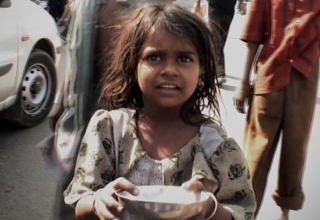
Aftercare is a critical yet unaddressed area of child protection in India. Normally a number of children, who grow up in state Care Homes, find it difficult to live independently after move out of them. The children growing up in care institutions are not adequately prepared to leave care and are not ready for independent living.
Their transition planning and training, during their last years in the Child Care Institutions (CCIs), is often lacking due to the lack of knowledge of the provisions in the existing juvenile laws as well as skills in addressing transition requirements of youth leaving care among child protection functionaries . Often children are turned away on turning 18 without guidance and support or continue to extend their stay in such institutions without any rehabilitation plan.
Udayan Care, an NGO based in Delhi, has addressed this challenge and designed an aftercare model through its Udayan Ghars, where these children are helped as a sort of bridge living period and integrated into real world.
To learn about this model already implemented in Delhi, a delegation of Bihar’s child protection functionaries that include members of the Child Welfare Committee, District Child Protection Unit, State Child Protection Society, Social Welfare Department and Child Protection Officer from UNICEF Bihar visited Delhi over a period of 3 days (18-21 May 2022) and retuned wise.
During the visit, the delegates were given exposure to the Udayan Ghar unique model, who also visited the aftercare homes for boys and girls, being managed by the Govt of Delhi and had an interaction with the officers of the Delhi Govt’s state Child Protection Society. The delegates also met the key officials at institutes such as Aurobindo Ashram and GMR, which provides skilling and employability opportunities to the youth.
Gargi Saha, Child Protection Officer, UNICEF Bihar who was part of delegation said, “The Govt of Bihar has declared the year 2021-22 as the year dedicated for family based alternative care and aftercare. As UNICEF Bihar we are happy and fortunate to support this initiative and to facilitate. This visit will lead to replicating some of the good practices of the Govt of Delhi. This has also been an excellent opportunity for the Bihar delegation to share the good work being undertaken in the State of Bihar for the most marginalized section of children and young people.”
Alok Ranjan, Assistant Director, Social Welfare Department, Bihar said, “It was a very beneficial, learning and sharing exposure visit of Officers from government run Child Care Institutions, District Child Protection Units, Child Welfare Committee, Sate Child Protection Society and Social Welfare Department, Bihar with officers of WCD, Delhi. We are thankful to UNICEF Bihar and Udayan Care for providing this opportunity. Every minute of the exposure visit has been well spent. We visited Government and Udayan Care run CCIs and Aftercare initiatives, interacted with CSOs who are working on Aftercare programs in Delhi and shared best practices with WCD, CWCs and DCPUs officials. We were exposed to a corporate and private institution’s run vocational training program which will be very good for our youths and children, staying in institutional care”.
Thanking the Govt of Bihar, Delhi and UNICEF for this initiative, Dr Kiran Modi, Founder and Managing Trustee, Udayan Care said, “It was a good cross learning initiative. I appreciate the candid sharing by Delhi Government Officials about the pathbreaking work of the Bihar Government namely Child Protection Management Information System (CPMIS) and Home Management Information System (HMIS) that is being looked at and replicated in the NCT of Delhi”.








